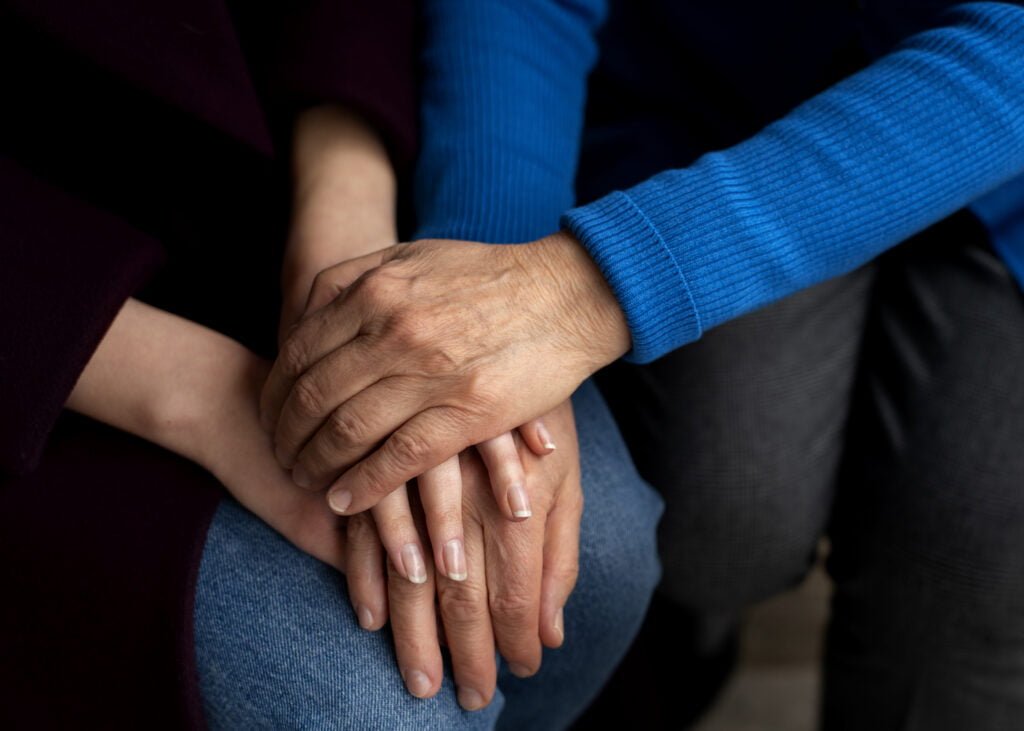In our journey through life, we often focus on cultivating relationships with others and seeking love and acceptance from external sources. However, the most fundamental relationship we have is the one with ourselves. This relationship forms the foundation for all other connections in our lives. Let’s explore the profound link between self-love and healthy relationships, and how nurturing one can significantly enhance the other.
Understanding Self-Love – More Than Just a Buzzword
Self-love is a term that’s gained popularity in recent years, but its importance extends far beyond trendy social media posts. At its core, self-love is about developing a deep appreciation and acceptance of who we are, flaws and all. It’s not about narcissism or selfishness; rather, it’s a recognition of our inherent worth and a commitment to our own well-being.
Psychologist Carl Rogers, a pioneer in humanistic psychology, noted,
“The curious paradox is that when I accept myself just as I am, then I can change.”
This statement encapsulates the transformative power of self-love. By accepting ourselves, we create a stable foundation from which personal growth can occur.
Self-love encompasses several key aspects:
- Self-awareness – Understanding our thoughts, feelings, and behaviours
- Self-acceptance – Embracing all parts of ourselves, including our imperfections
- Self-care – Prioritizing our physical, emotional, and mental well-being
- Self-compassion – Treating ourselves with kindness, especially during difficult times
- Self-respect – Honoring our values and setting healthy boundaries
The Impact of Self-Love on Relationships
When we cultivate a loving relationship with ourselves, we’re better equipped to form and maintain healthy relationships with others. Research in the field of psychology consistently shows that individuals with higher self-esteem and self-compassion tend to have more satisfying partnerships.

Here’s how self-love positively impacts our relationships:
- Improved communication – When we’re comfortable with ourselves, we’re more likely to express our needs and feelings openly and honestly.
- Increased emotional availability – Self-love helps us manage our own emotions, allowing us to be more present and supportive for our partners.
- Greater resilience – A strong foundation of self-love equips us to handle relationship challenges more effectively.
- Reduced codependency – When we love ourselves, we’re less likely to seek validation or completeness through our relationships.
- Authentic connections – Self-love allows us to show up as our true selves, fostering deeper, more genuine relationships.
- Healthier boundaries – Understanding and valuing ourselves helps us establish and maintain appropriate boundaries in relationships.
Overcoming the Inner Critic – A Key to Self-Love
One of the biggest obstacles to self-love is our inner critic – that nagging voice that constantly judges and belittles us. This internal dialogue often stems from past experiences, societal pressures, or internalized negative beliefs. The inner critic might say things like:
- “You’re not good enough.”
- “You don’t deserve love.”
- “You’ll never succeed.”
- “Everyone else is better than you.”
Recognizing and challenging these thoughts is crucial for developing self-love and nurturing healthy relationships. Here are some strategies to quiet the inner critic:
- Awareness – Start by simply noticing when your inner critic speaks up.
- Question – Challenge the validity of these negative thoughts. Are they based on facts or fears?
- Reframe – Replace critical thoughts with more balanced, compassionate ones.
- Self-compassion – Treat yourself with the same kindness you’d offer a good friend.
Remember, the goal isn’t to eliminate the inner critic entirely (which is unrealistic) but to reduce its influence and develop a more balanced inner dialogue.
Practical Steps to Cultivate Self-Love
Developing self-love is an ongoing process, but there are concrete steps you can take to nurture this essential relationship with yourself:
- Practice self-compassion daily – Treat yourself with kindness, especially when you make mistakes or face challenges.
- Set and maintain healthy boundaries – Learn to say no to things that don’t align with your values or well-being.
- Engage in regular self-care activities – This could include exercise, meditation, hobbies, or anything that rejuvenates you.
- Challenge negative self-talk – When you notice self-critical thoughts, pause and reframe them in a more balanced way.
- Celebrate your achievements – Acknowledge your successes, no matter how small they may seem.
- Practice forgiveness – Let go of past mistakes and learn from them instead of dwelling on them.
- Surround yourself with positive influences – Spend time with people who support and uplift you.
- Seek therapy or counselling if needed – Professional support can be invaluable in developing self-love.
- Practice gratitude – Regularly acknowledge the good things in your life and about yourself.
- Engage in positive affirmations – Use empowering statements to reinforce your self-worth.
The Ripple Effect of Self-Love
As we develop self-love, we naturally become more authentic in our relationships. This authenticity creates a positive ripple effect, inspiring others to embrace their true selves as well. Brené Brown, a renowned researcher on vulnerability and shame, states,
“Loving ourselves through the process of owning our story is the bravest thing we’ll ever do.”
This ripple effect extends beyond our immediate relationships. When we love ourselves, we’re more likely to:
- Stand up for our beliefs and values
- Pursue our passions and goals
- Contribute positively to our communities
- Inspire others to practice self-love
Self-Love and Relationship Dynamics
Self-love influences various aspects of our relationships in profound ways:
Trust
When we trust ourselves – our judgments, instincts, and ability to handle life’s challenges – we’re more likely to trust others. This self-trust forms the basis for healthy, secure relationships where both partners feel safe to be vulnerable.
Intimacy
Self-acceptance fosters deeper emotional connections. When we’re comfortable with ourselves, we’re more open to sharing our true thoughts and feelings with our partners, leading to greater intimacy.
Conflict Resolution
Self-love equips us with emotional stability to navigate disagreements. We’re less likely to take things personally or react defensively, allowing for more constructive problem-solving in our relationships.

Independence
A strong sense of self-love allows us to maintain our individuality within relationships. We’re less likely to lose ourselves or compromise our values for the sake of the partnership.
Attraction
Paradoxically, when we’re not desperately seeking love from others but are content within ourselves, we often become more attractive to potential partners. Confidence and self-assurance can be highly appealing qualities.
The Journey of Self-Love – Patience and Persistence
It’s important to remember that self-love is a journey, not a destination. It requires consistent effort and patience. There will be setbacks and challenges along the way, but each step forward is valuable.
As you cultivate self-love, you’ll likely notice improvements in your relationships and overall life satisfaction. These might include:
- Reduced anxiety and depression
- Increased resilience in facing life’s challenges
- Improved decision-making skills
- Greater overall happiness and life satisfaction
- More fulfilling relationships
Self-Love in the Face of Societal Pressures
In today’s world of social media and constant comparison, practising self-love can be particularly challenging. We’re bombarded with images of “perfect” lives, bodies, and relationships, which can fuel our inner critic and make us feel inadequate.
It’s crucial to remember that these portrayals are often curated and unrealistic. True self-love involves accepting ourselves as we are, not as we think we should be based on societal standards. This doesn’t mean we stop striving for growth, but rather that we approach personal development from a place of self-acceptance rather than self-criticism.
The Role of Self-Love in Healing Past Wounds
Many of us carry emotional wounds from past experiences, whether from childhood, previous relationships, or other life events. These wounds can significantly impact our ability to love ourselves and form healthy relationships.
Self-love plays a crucial role in the healing process. By developing compassion for ourselves and acknowledging our pain without judgment, we can begin to heal these wounds. This healing, in turn, allows us to enter into new relationships with greater emotional health and resilience.
Self-Love and Personal Growth
Self-love and personal growth go hand in hand. When we love ourselves, we’re more motivated to invest in our personal development. This might involve:
- Pursuing education or new skills
- Working on emotional intelligence
- Developing healthier habits
- Exploring our passions and interests
As we grow and evolve, our capacity for self-love also expands, creating a positive feedback loop of personal development and self-acceptance.
The Connection Between Self-Love and Self-Esteem
While self-love and self-esteem are related, they’re not exactly the same. Self-esteem often refers to our overall sense of self-worth or personal value. Self-love, on the other hand, is more about the act of caring for and nurturing ourselves.
Healthy self-esteem naturally arises from self-love. When we consistently treat ourselves with kindness and respect, our sense of self-worth improves. This improved self-esteem then feeds back into our capacity for self-love, creating a virtuous cycle.

Self-Love and Emotional Regulation
One of the key benefits of self-love is improved emotional regulation. When we have a strong foundation of self-love, we’re better able to manage our emotions in healthy ways. This emotional stability is crucial for maintaining healthy relationships.
Some ways self-love improves emotional regulation include:
- Increased self-awareness of our emotional states
- Better ability to self-soothe during times of stress
- Reduced reactivity to external events or others’ behaviours
- Improved capacity to express emotions in healthy ways
The Impact of Self-Love on Professional Life
While we’ve focused primarily on personal relationships, it’s worth noting that self-love also has a significant impact on our professional lives. When we love and value ourselves, we’re more likely to:
- Advocate for ourselves in the workplace
- Pursue career paths that align with our values and passions
- Set healthy work-life boundaries
- Handle professional challenges with resilience
- Collaborate effectively with colleagues
These benefits in our professional lives can, in turn, positively impact our personal relationships by reducing work-related stress and increasing overall life satisfaction.
Cultivating Self-Love – A Lifelong Practice
As we conclude our exploration of the connection between self-love and healthy relationships, it’s important to emphasize that cultivating self-love is a lifelong practice. It’s not something we achieve once and then forget about. Like any important relationship, our relationship with ourselves requires ongoing attention, care, and nurturing.
By prioritizing self-love, we create a solid foundation for healthy, fulfilling relationships with others. This investment in ourselves benefits not only us but also those we care about, creating a positive cycle of love, acceptance, and growth.
Remember the words of poet Lucille Clifton:
“I celebrate myself and sing myself.”
By learning to truly celebrate and sing ourselves, we open up a world of deeper, more authentic connections with others.

Take the Next Step in Your Self-Love Journey
If you’re ready to deepen your practice of self-love and transform your relationships, I’m here to support you. As a spiritual and mindfulness coach, I offer individual sessions tailored to your unique needs and goals.
In these sessions, we’ll work together to:
- Identify and challenge limiting beliefs
- Develop personalized self-love practices
- Explore mindfulness techniques for self-acceptance
- Address specific relationship challenges
- Create a roadmap for ongoing personal growth
Don’t wait to start loving yourself more fully. Your journey to deeper self-love and more fulfilling relationships begins with a single step.
Book Your Individual Session Today
Together, we’ll unlock the transformative power of self-love in your life and relationships.
Remember, you deserve love – starting with the love you give yourself. Let’s begin this beautiful journey together.




